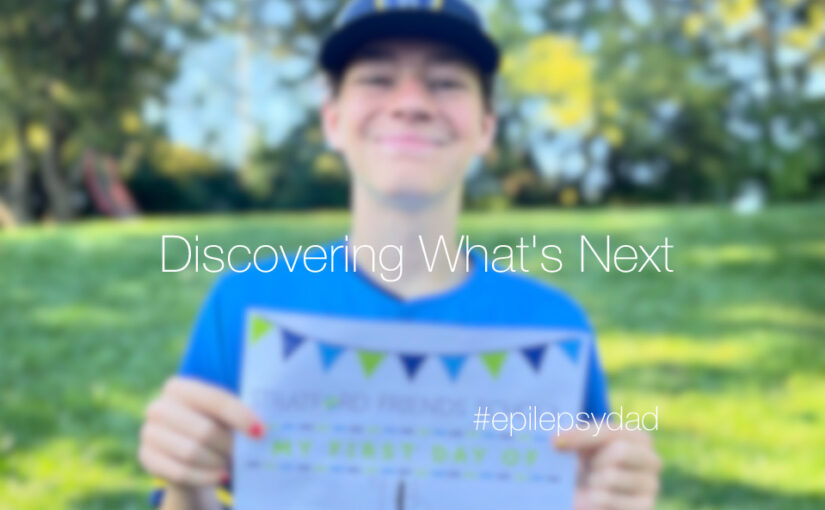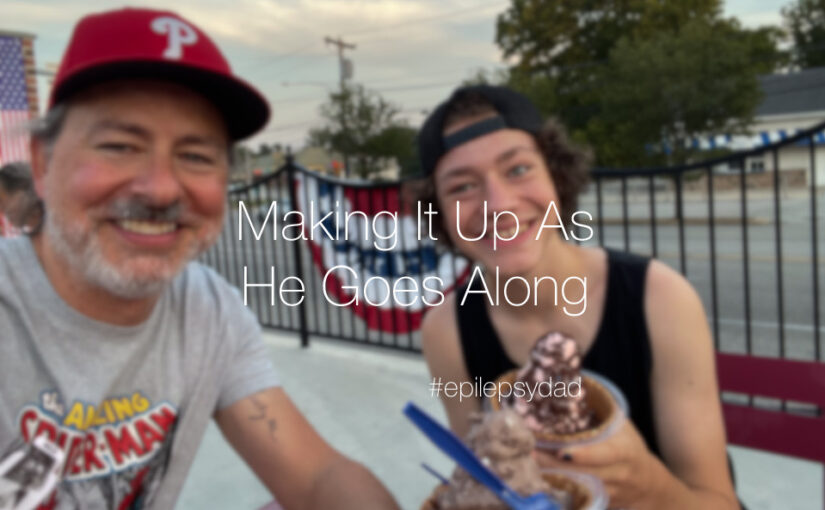The other day, I was driving my son to music camp. The camp was at the same place where he takes his drum lessons but, rather than private lessons, the camp groups the kids into bands that perform at the end of the week.
When I asked my son if he liked the band experience, I expected his response to involve the difference between lessons and performing or what it is like to play with other musicians. Instead, his response centered around wondering if he would get on the Wall of Fame that the school had of previous students.
I wasn’t entirely surprised by his response. Very often, his goals involve a championship. When we talk about hockey, he wants his name to be on the Stanley Cup. When we play Fortnite, he wants to be on the leaderboard or have his own skin like the influencers have. He talks about subscribers and likes for his Twitch feed and YouTube channel.
As a kid, I remember being young and obsessed with getting my initials on every video game I touched to leave my mark on everyone who would play the game after me. At one point, my initials filled the high score screen of a game called Mr. Do that I played every day while waiting for the school bus.
I played basketball in the driveway and imagined the next shot was a buzzer-beater to win the championship, and I tossed balls in the air and pretended that I faced a full count and needed a hit to win the game. Creating the ultimate clutch scenario and delivering is the dream of many would-be heroes, even those of us who were not destined for sports greatness. It added drama to a sport or game that I loved to play.
I’ve heard interviews with professional athletes who had the same dreams, except they focused on achieving them. Even at a young age, they would spend hours working on their game, taking slap shots, making free throws, or swinging a bat. They aimed to become a professional athlete and help a team win a championship by delivering in that clutch moment.
Whether it’s video games, sports, or music, that desire to be the best can be a great motivator. But what happens when achieving that dream becomes the bar? What if whether a dream is achieved becomes the only measure of worth?
I love that my son has big dreams. For everything he has been through and everything he struggles with daily, he could have just as easily become a victim of his situation and have no dreams at all. But I’m afraid that if he doesn’t achieve his dream, he will resent the experience rather than be proud of himself for what he did accomplish.
I realize those are my feelings and may not be his. It breaks my heart that his chances of playing in the NHL are minuscule, and because I’m disappointed for him, I’m expecting him to be disappointed, too. But my feelings are based on my frustration and anger at what his condition has taken from him, which probably results in a higher degree of disappointment, just like it results in a higher degree of admiration for what he can accomplish.
Ultimately, my job as his parent is to let him have his dreams and make it okay, whether he achieves them or not. My job is to instill in him the ability to be proud of himself for his accomplishments and to encourage him to love the experience, the sport, and the time he could do what he enjoys. It’s my job to show him that there is a sense of accomplishment in doing something and then working at it to improve and become the best you can be, even if it doesn’t come with a trophy or picture on a wall.
I’m a big believer in dreaming. If you don’t dream it, you can’t become it. – Magic Johnson
Dream big, pal.


